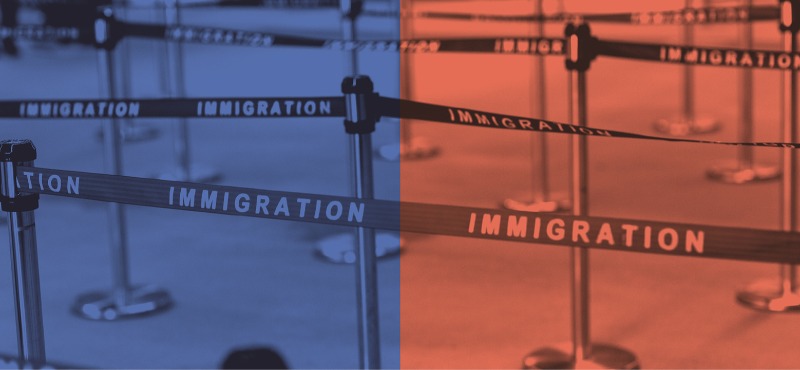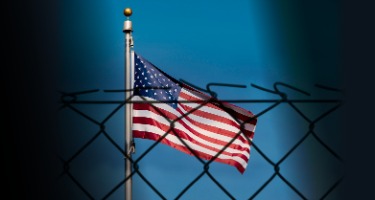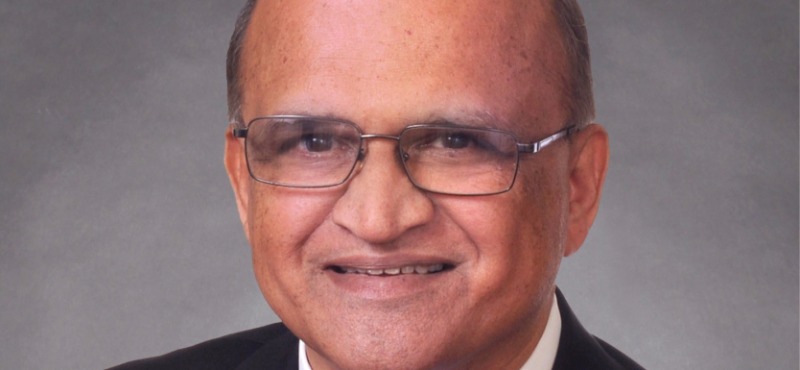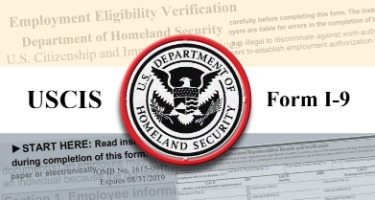H-1B cap season is upon us as we gear up for the annual filing season. During this time, we guide our clients and help them to prepare H-1B petitions that will be filed with United States Citizenship and Immigration Services (USCIS) during the first week of April. The H-1B visa program—widely used across a wide segment of industries including tech, academia, and finance—is designed to provide U.S. employers with visas for those working in “specialty occupations,” or jobs that require a minimum of a Bachelor’s degree or its equivalent in a related field. Historically, the demand for H-1B numbers (65,000 for Bachelor’s candidates and 20,000 for those who have completed a U.S. Master’s program) has usually outstripped the availability of these highly coveted visas. In the most recent year, the USCIS received approximately 199,000 applications for a pool of 85,000 visa numbers.
In prior cap seasons, the primary challenge associated with the H-1B has been one of supply and demand. More recently, the H-1B dynamic and planning for it have significantly changed. Now, the issue is not only whether a petition will be selected by USCIS, but also whether it will ultimately be approved—and, if so, whether such approval will be issued in a timely manner.
Two critical issues punctuated last year’s cap season. First, last year the government issued a record number of requests for evidence (RFEs) and ultimately some denials of petitions that would have been routinely approved in the past. This development was consistent with the change in administration and the president’s focus on implementing the spirit of his Buy American Hire American Executive Order. Most of the RFEs and denials focused on the entry-level nature of the job offered and whether the duties were sufficiently complex so as to warrant H-1B classification, as well as issues relating to the prevailing wages offered to the employee. USCIS also issued a policy memorandum rescinding earlier agency guidance that had deemed the position of computer programmer to qualify as an H-1B specialty occupation. The press was replete with articles discussing instances in which highly skilled candidates and blue chip employers had their petitions denied where the agency applied standards that were in many instances not supported by the relevant law.
Second, timing was much more of an issue than in years past due to the sudden suspension of premium processing while the cap season and employers’ planning were already well underway. Premium processing is a fast-track process available to employers where they can pay a premium filing fee to assure 15-day case adjudication. As a result of this suspension, an unprecedented number of cases were simply not able to be approved prior to the October 1, 2017, start of the fiscal year.
This meant that many H-1B workers were temporarily forced to go off payroll—or to work for their employer overseas—while awaiting the adjudication of their employers’ H-1B petitions.
Hopefully, this will not be the case for this upcoming season as premium processing service was reinstated on October 3, 2017. However, from a planning perspective, employers should stay attuned to these types of administrative changes, which can also have a far-ranging effect on their hiring programs.
Meanwhile, the Department of Homeland Security has clearly signaled in its regulatory agenda for 2018 that it intends to overhaul the H-1B program to further detect H-1B visa fraud and abuse and to ensure that only the best and brightest secure H-1B status. Specifically, a number of regulatory changes are being proposed that, if implemented, would change the nature of the H-1B cap program in the future. Given that the rules will likely go through regular administrative procedures of notice and comment, these changes are unlikely to affect Fiscal Year 2019 adjudications, but employers should be poised for developments. Two in particular are of note.
H-1B Cap Lottery Pre-Registration and Selection
This proposed regulation, which could be published as early as February 2018, would revive a 2011 proposed rule that set in place a pre-registration process for the lottery. Only petitioners whose numbers had been selected in the pre-registration process would then be eligible to file their H-1B cap cases.
Also, a priority system would be developed to accord H-1B visas to the most highly paid and highly skilled, in line with the Buy American Hire American Executive Order.
Though unlikely, if this new step were introduced deep into H-1B cap season, this extra step could further hamper employers’ ability to successfully manage their H-1B program and planning for Fiscal Year 2019.
H-1B Eligibility
Under this proposed rule, expected to be published in October 2018, the rule would revise the definition of “employer-employee relationship,” raise the standard on what constitutes a specialty occupation, and might also implement changes to the H-1B wage requirements.
Given the dynamic landscape and the many variables at play, employers are closely watching the evolving standards. Savvy employers will work closely with their counsel to ensure that they remain abreast of all developments. In order for employers to remain eligible to successfully leverage the H-1B program, it is critical that their programs continue to align with current governmental adjudicatory standards.
Employers have been gearing up for the challenges ahead by carefully vetting their H-1B candidate pool. In some instances employers may opt to reserve this category for more senior talent. Notwithstanding the challenges, on balance the H-1B visa provides a very solid visa path that employers should pursue this upcoming season. Acting now is recommended to preempt limitations associated with any future modifications to the program and to achieve more solid visa footing than remaining on a TN, optional practical training, or an H-4 spousal employment authorization card, as these options may not be available in the future.
-------------------------
Lisa Koenig is a partner at Fragomen, Del Rey, Bernsen & Loewy, LLP (New York), a preeminent leader in business immigration law, where she has been employed for more than 20 years. Lisa provides strategic counseling and advice regarding the full range of immigration compliance issues faced by companies with a globally mobile workforce. She works with multinational employers from startups to mid-size and large companies, to find compliant and pragmatic solutions for business travelers, trainees, and short- and long-term assignees. Lisa earned her Bachelor of Arts degree from New York University and her J.D. from Brooklyn Law School.
































